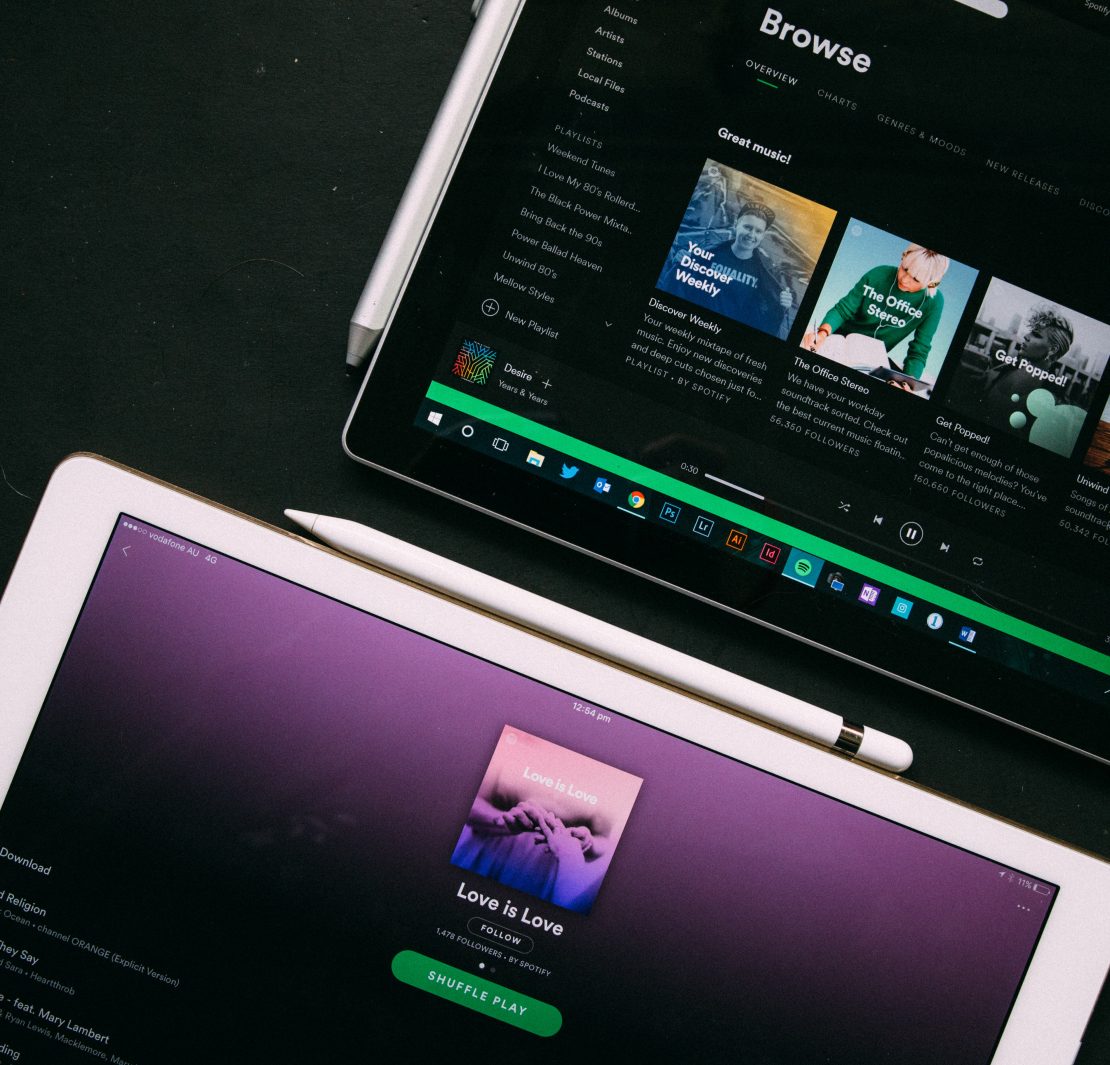The music industry has spent the last few weeks in dispute with artificial intelligence; although their complicated relationship dates back decades.
Earlier this month, users rediscovered Spotify’s ‘fake artist’ problem – aggressively promoted playlists of AI-generated songs by artists that don’t exist.
In a viral Twitter thread, user Adam Faze compiled 50-some versions of the same song into a single playlist. Faze first sniffed out a problem when he kept encountering the same song on Spotify radio even after choosing to skip the track. But his curiosity peaked when he realised the song was attributed to a different and obscure artist each time.
i've officially stumbled upon the weirdest thing i've ever seen.
on a spotify radio this week, 1 song annoyingly kept playing. except every time I looked, it was a different song name and artist entirely.
so I started keeping track. here's 49 of them.https://t.co/VrmYPyQQqg pic.twitter.com/ejrwf11Oc6
— ADAM FAZE (@adamfaze) April 18, 2023
But these ‘ghost artists’ are far from a new phenomenon, and their cumulative streams now sit in the billions – more than streams of artists signed to major record companies.
All the way back in 2016, the industry blog Music Business Worldwide (MBW) accused Spotify of paying producers a flat fee to create tracks for its playlists — some of which garner over 1 million subscribers — instead of licensing the content and paying out royalties to the rights holders. Such playlists have become increasingly popular in the streaming era—because users are more inclined to turn to pre-existing playlists rather than spend time compiling them. Most of the artists on these playlists have no digital footprint outside Spotify.
Spotify did end up denying all those claims, which raised more questions than it answered. “We do not and have never created ‘fake’ artists and put them on Spotify playlists. Categorically untrue, full stop,” a Spotify spokesperson told Billboard.
In response, MBW published a list of 50 artists with millions of streams that it said fit the profile of “fake artists” and suggested that if Spotify wasn’t buying the tracks outright, it may be arranging reduced royalty rates.
AI has butted heads with the music industry recently in more ways than one. Earlier this week, Universal Music Group (UMG), which controls one-third of the global music market, requested that streaming services prohibit AI companies from training on melodies and lyrics from copyrighted songs to create new, AI-generated bops. They cited a “moral and commercial responsibility” to prevent the unauthorised use of artists’ voices.
This move was in response to “Heart on My Sleeve,” an AI-powered collaboration between Drake and The Weeknd that took over social media feeds in mid-April. A TikTok user created the song utilizing AI software and the star’s vocals. The incident raised significant concerns about copyright, compensation and the mounting legal implications of AI’s role in music creation. Within 24 hours, “Heart on My Sleeve” was removed from platforms like Spotify, YouTube, Apple, Soundcloud, and Bandcamp.
“[This] begs the question as to which side of history all stakeholders in the music ecosystem want to be on: the side of artists, fans and human creative expression, or on the side of deep fakes, fraud and denying artists their due compensation,” MBW quoted a spokesperson from the company. “These instances demonstrate why platforms have a fundamental legal and ethical responsibility to prevent the use of their services in ways that harm artists.”
On the other hand, some reports also state that major labels have started adopting the practice themselves, populating playlists with ‘fake artists’ for profit.
After the news broke, Canadian electro-pop artist Grimes tweeted that she will split 50% of royalties with AI artists that use her voice, allowing anyone to generate her voice “without penalty”. The increasing sophistication of AI-generated tracks has caused anxiety for many artists, but Grimes seems to have embraced the new development, as well as the death of all copyright.
I think it's cool to be fused w a machine and I like the idea of open sourcing all art and killing copyright
— ?????? (@Grimezsz) April 24, 2023
With Spotify denying any involvement in the situation, the question remains as to how there are so many pseudonymous musicians on the platform with no digital footprint, or why Spotify is so aggressively promoting them to users. True artists who don’t conform to the rules of the mainstream are already harder to access. But the way things are going, it won’t be long before much of the music industry is a junkyard of algorithmically-developed beats rearranged in a hundred different versions. The integration of AI into the music industry seems inevitable, and the future of music hangs on a very weak thread.




